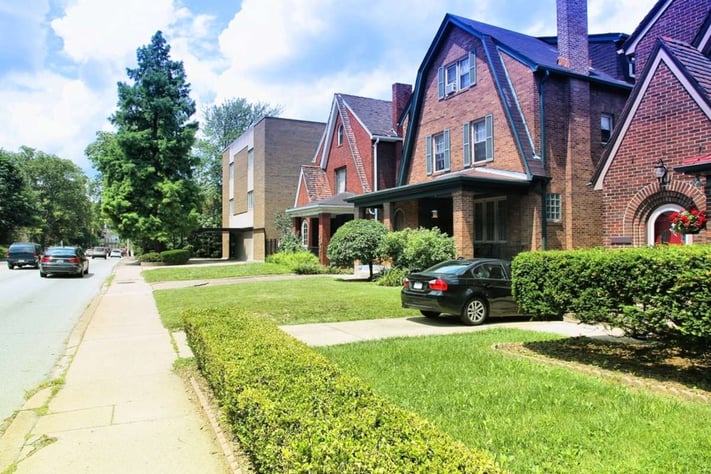Making wise professional property management choices to reach your goals involves knowing the ideal properties to invest in for the best ROI.
However, many factors go into making the right decision. Whether you are just starting in real estate or have been a rental property owner for a while, an investment property management company in Pittsburgh can aid with this important decision. Let's take a look at the many factors that bring it all together when it comes to choosing perfect investment properties.
Make Sure It's an ROI-Generator
One of the first things to consider is the return on investment (ROI). As you move toward making a purchase, you'll want to calculate the ROI to make sure it will be profitable enough for your needs and ongoing operational expenses.
You can get a glimpse into the ROI by considering the following:
- Check out the neighborhood trends to see if it's in an upswing or downturn.
- Calculate your estimated operating costs and expenses to know your net profit.
- Research any future developments to assess changes that may be coming down the pike

This gives you a quick idea about a property. However, to get into the nitty-gritty details, you will need to do a deeper dive and assess key elements of the ROI.
Research the Job Market Where the Rental Property is Located
The job market can indirectly affect a property's ROI because of employment opportunities in the area and whether there are enough jobs to attract residents.
If there are not enough jobs in the area, people may not want to live there. In addition, a community that has a job market with many different job types can attract more people, from skilled blue-collar labor to educated workers. An investment property management company can help you evaluate the job market in the area to let you know what the job market looks like.
Review Property Taxes
No one wants to think about property taxes, but it's a part of owning rental properties.
Property taxes play a part in your overall expenses. Your ROI calculation deducts expenses like taxes, insurance, upgrades, and any utilities you choose to pay from your monthly income. When considering the property tax amount, look at the current rate and the history (to get an idea of average annual increases). Property owners can also contact the municipality office and inquire about the expected taxes.
Tax rates can be used to estimate expenses and give you an idea about the house and property value.
Factor In Insurance Costs
Insurance costs must also be part of your return on investment calculations.
Various things can affect rates for landlord insurance, like the location, crime in the area, the house's age, and the home's value. For example, if a home is located in an area known for crime, you may have to pay more due to potential break-ins and property damage. In addition, if the location is in a flooding zone and you need additional coverage, that will cost more, too.
If you're not sure how to research insurance policies, the best property management Pittsburgh, PA, offers will have information about the insurance coverage you need based on specific rental properties.
What About the Neighborhood?
Neighborhoods are important to evaluate when choosing a potential investment property. As mentioned, a property's neighborhood can affect your insurance rates. It's also helpful to understand the categorization of neighborhoods and which one is best for rentals that help you meet your goals.
Neighborhoods are categorized as Class A, B, or C.
- Class A properties are high-end homes that residents often choose to showcase a luxurious lifestyle. However, they have a higher price tag and, for that reason, don't usually make ideal investment properties. Without securing a high rent price, property owners can struggle to cover expenses when investing in Class A homes as rentals.
- Class B properties are middle-class homes that tend to attract blue-collar workers. They are moderately priced and make good investments!
- Class C neighborhoods have run-down homes in the lower-end or high-crime parts of town. These houses typically sell for less money but don't generate competitive rental prices. These properties can be challenging to keep occupied to generate consistent revenue.
You might find a fantastic home, but it's smack in the middle of a "not-so-great" neighborhood.
How Does the Future Look?
Another thing to consider before moving forward with a property purchase is looking ahead to the future. Consider a few questions to analyze the long-term potential for an area and property, including:
- How does the area look?
- Do you see signs of activity?
- Is there evidence of growth or new buildings going up?
Evidence of current or planned growth can indicate that the area is thriving and not stagnant. However, seeing many closed businesses and run-down, empty lots with no signs of future development could indicate that the area is dying.

Property managers typically recommend avoiding an area that is not progressing. Working with a professional property management team can give you insight into what is happening in a community and how to invest appropriately!
Gain Investment Insights With the Best Property Management Pittsburgh, PA Offers
Don't take a stab in the dark when purchasing new properties. Instead, work with the qualified property management team at Rentwell when analyzing potential rental property investments! We have the research and experience property owners need to add the right properties to a portfolio, then manage them profitably.
Contact our team today to get started.







